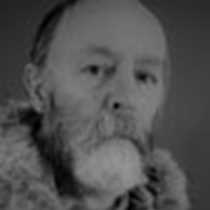Loch Linnhe, Caledonian Canal & Glenfinnan
We left Oban during breakfast and sailed into the glassy waters en route for the second phase of our itinerary – the Caledonian Canal. During the morning we sailed through the Sound of Lorn, Loch Linnhe and Loch Aber before entering the first set of locks on the Caledonian Canal at Corpach.
During the morning’s sail our National Geographic guest speaker, Keenan Smart, gave an introduction to some excerpts from a few National Geographic documentaries on the subject of “re-wilding” – the reintroduction of birds and animals to countries/areas where they have long since disappeared. This involves species such as wolves, bears, beavers and wild boar. It was an interesting and thought-provoking presentation that made us aware of issues connected with re-wilding that we had not realized, especially the crucial role predators play in maintaining an environmental balance.
By lunchtime we were going up the set of eight locks on the canal known as Neptune’s Staircase. This brought us to our mooring for the rest of the day and night at the top of the staircase in Banavie. Mid-afternoon we left the ship, boarded a coach and made the short drive to beautiful Glenfinnan. This is an important place in Scottish history and its name will crop up again several times during the rest of our trip, as it was here in 1745 that Bonnie Prince Charlie raised his standard and signaled the start of the Jacobite uprising, a subject we will hear more about in the coming days. Glenfinnan is also known on a lighter note as the location of the enormous, curving railway viaduct featured in the “Harry Potter” films with its picturesque “Hogwart’s Express” steam train. We returned to the ship, not by coach but by train (not the steam train), and enjoyed the journey back to Banavie on part of one of the great railway journeys of the world.
Following dinner we were entertained in true traditional Scottish style by The Scottish Musical Roadshow, a loose collection of local musicians playing variety of instruments with songs in English and Gaelic which we were encouraged to sing along with. It had been a quite perfect day.




